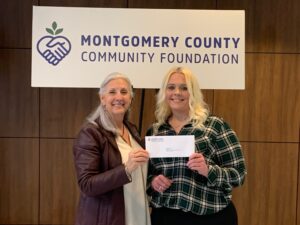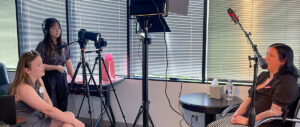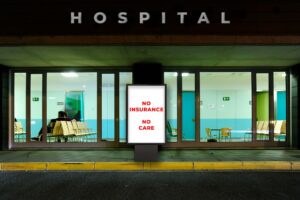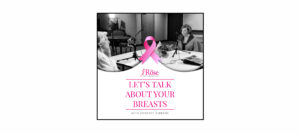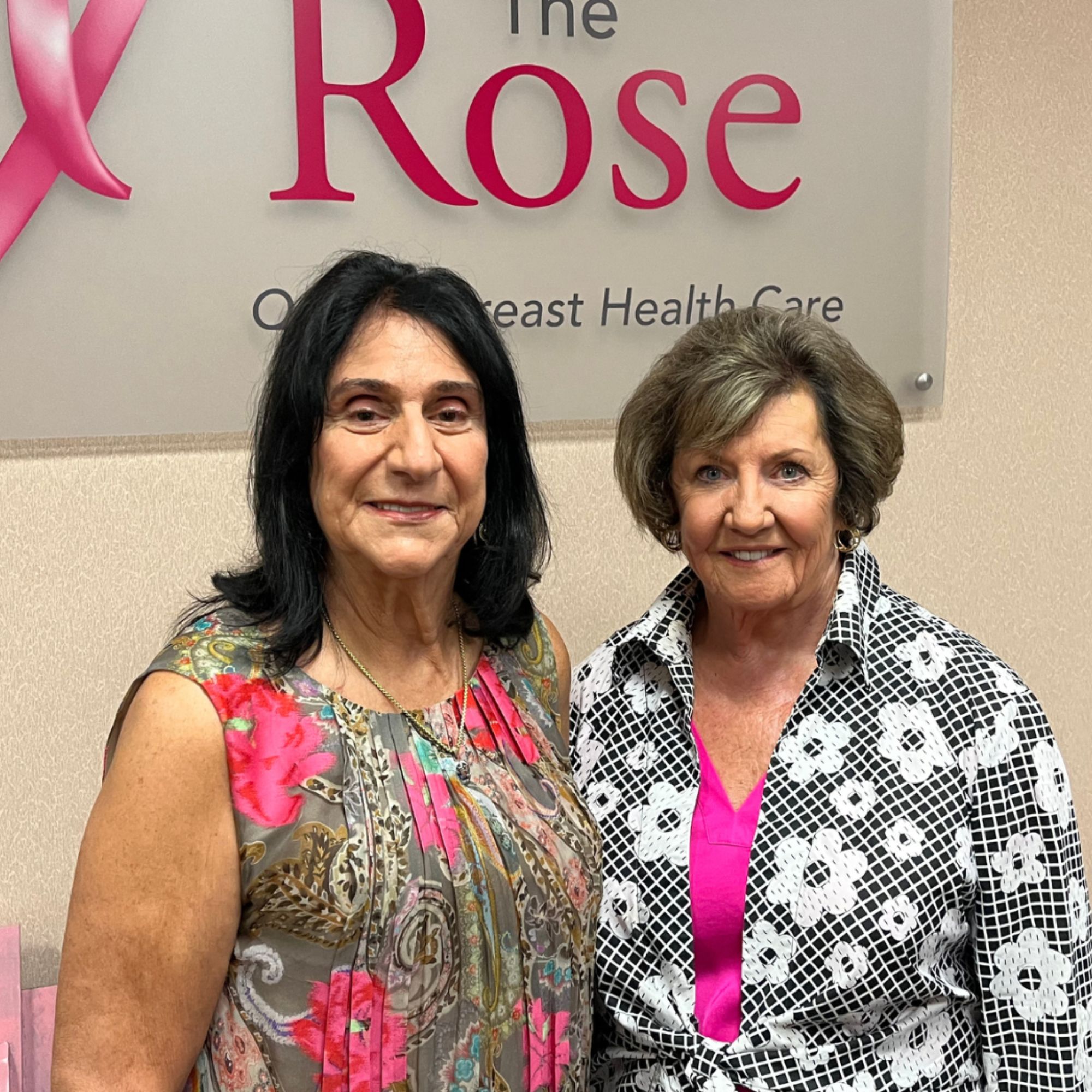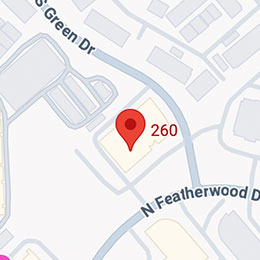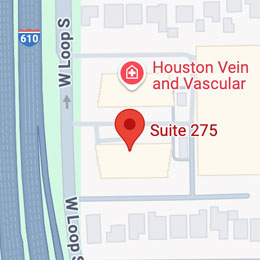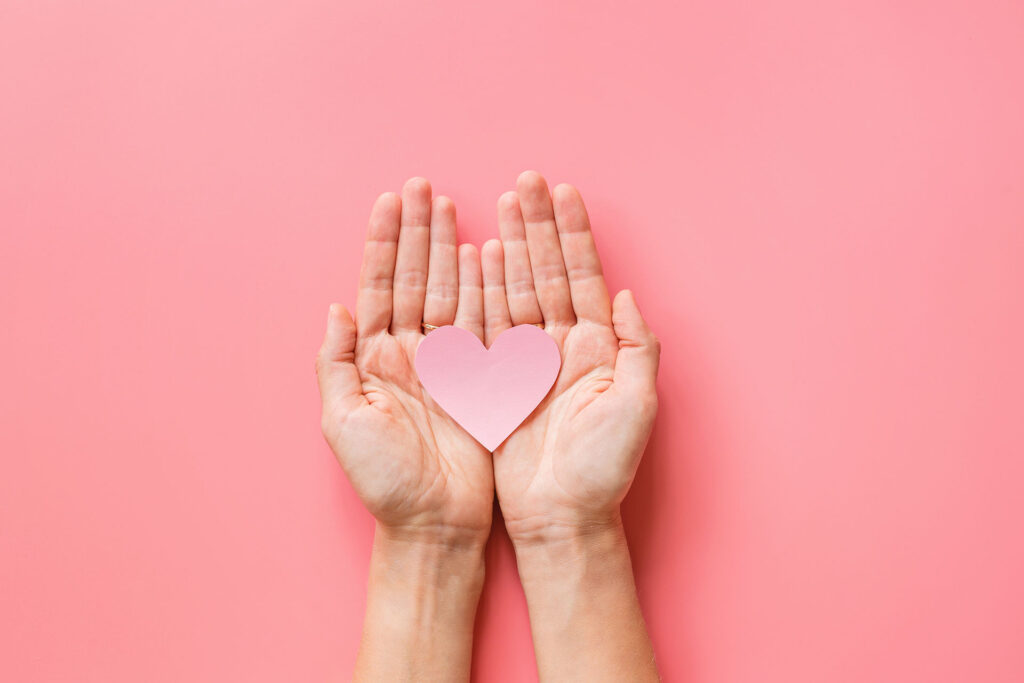Dorothy: [00:00:00] She worked at NASA long before women had made their mark in the world. She was a whizz at programming and a whizz at math, and she fit right in. But after she married, she moved into real estate investing. The other thing that she was a whizz at was playing tennis, and she and her husband competed in tournaments all over the state.
For over 21 years, she and other members of Serve Up A Cure have helped The Rose provide care to those most in need.
Let’s Talk About Your Breast. A different kind of podcast presented to you by The Rose, the Breast Center of Excellence and a Texas treasure. You’re going to hear frank discussions about tough topics. And you’re going to learn why knowing about your breast could save your life. Join us as we hear another story and we answer those tough questions that you may have.
We [00:01:00] have Claire here with us today, who is a 22 year breast cancer survivor, and Claire, breast cancer was not new to your family. You’d had some family history with that.
Claire: Yeah, absolutely. So, I was getting checked up regularly because my grandmother died of breast cancer and my mother had a mastectomy and, um, so I knew I was high risk.
And, um, you know, I couldn’t believe it, uh, that it was that big when they found it when I was 49 years old.
Dorothy: Now, wait a minute. You found it on a mammogram.
Claire: Mm hmm.
Dorothy: And how big was it?
Claire: 2.8 centimeters.
Dorothy: Wow.
Claire: And they said my right breast was totally clear. And so, you know, I had radiation, radiology, ultrasound, everything.
And so when I had my treatment, uh, they talked me into doing a TRAM flat. flap because I was athletic. And, and so I had him do a breast reduction on the right breast because I was pretty heavy breasted. [00:02:00] And the pathologist found a centimeter of tumor in the right breast. So I had to go in a week later, go in, I never left the hospital, uh, go in and, um, have that second mastectomy.
And it was tough. You know, the, the TRAM operation and the mastectomy and everything is tough. To begin with then having to have you know, another major surgery within a week was really hard.
Dorothy: Now then and I don’t know that it’s changed all that much but the TRAM surgery could take 12- 14 hours I mean it was a long surgery.
Claire: I believe it took took as I remember maybe nine? And—
Dorothy: which is still way too long.
Claire: Yeah, you know, they had two surgeons They had a mastectomy surgeon and then they had the plastic surgeon that specialized in a breast reconstruction.
Dorothy: So on your right breast you just had Reconstruction implant.
Claire: Left breast is my [00:03:00] stomach.
Dorothy: Yeah.
Claire: Right breast is an implant.
Dorothy: Yeah. So yeah, we haven’t talked a lot about the different kind of surgeries on this podcast, but the TRAM flap has proven to be one of the more preferred, even though it takes longer to heal and longer during the surgery, but it usually has incredible results.
Claire: It really does.
It really does. My left side feels totally natural. My right side does not.
Dorothy: And that’s something for women to know. I mean, that’s part of the whole process of reconstruction. And it’s a change in your body. It’s something that, you know, you’re not used to seeing, feeling. So it’s a real change. So now 22 years ago Have you have you seen in the breast cancer world and I know you may not have stayed into it, but you’re in health care But have you seen a lot of changes?
Claire: I believe so. I I think that there’s a big push towards. Um, [00:04:00] Lumpectomy It’s not as invasive. What I had done was very invasive, you know was a lot And the other thing is I think that they have made major strides in the chemotherapy because I was hit with fact It was tough. You know, it was really tough And I think they’ve got more targeted therapies now and also I think on the radiation therapy is more targeted less damage and uh when You know right after I had it done You know, because of my tournament that I do for breast cancer, which is Serve Up A Cure.
I, I was called by MD Anderson to talk to a lot of ladies, and I, in my experience, you have people like me that are totally open. I’m happy to talk about it, happy to help anybody. And then there’s some people that, you know, fall into their shell and they’re so scared and it’s a scary time. It really is a scary [00:05:00] time.
And I know for me, when I found my oncologist, it’s like a curtain was lifted and I had a plan. I had a plan of action and I knew I was going to follow that plan to the T. Do everything that they said and try to get my best outcome.
Dorothy: But the other thing, Claire, is 22 years ago, people didn’t talk a lot about breast cancer.
I mean, it was just starting to be talked about. You know, it, it, you were a part of that, probably the group that allowed women to talk about it, and it became something that we could talk about. And, you know, knowing someone else has been there makes all the difference in the world.
Claire: Well, my family, when my grandmother got diagnosed with it, she was 70, they didn’t even tell me about it.
They didn’t tell me what stage. I knew she had to be a higher stage because it was in her lymph nodes. But that’s how it was, you know, you, you, you, uh, were, you kind of wanted to hide it.
Dorothy: Right.
Claire: And, um, and I, and this was in [00:06:00] the seventies when my grandmother got diagnosed and. There was no, in, in a small town in South Carolina and they did, uh, radiation therapy and didn’t do anything else, and a mastectomy, nothing, nothing else.
And, uh, so, you know, historically, I don’t know, uh, had she been in Houston, if she would have maybe had a better outcome.
Dorothy: And, and, yeah, we never, we never know. You’re, you were fairly young. I mean, 49. When you were diagnosed?
Claire: And I think it was because I was on birth control pills.
Dorothy: Ah.
Claire: And I had, you know, argue with my oncologist and he says, No, no, it protected you from this and that and the other.
But, the minute you get diagnosed, No more, no more birth control pills, no hormone therapy, no nothing.
Dorothy: Right.
Claire: So, there’s got to be a correlation there.
Dorothy: There’s got to be, yes.
Claire: And so, I’ve told my daughter that, you know, she cannot be on birth control pills because of our family history. Because both my mother [00:07:00] and my grandmother got it at 70 and I got it at 49.
And, uh, and it looked like it wasn’t very aggressive. It looked like the kind that you would get if you were 70, you know, so.
Dorothy: Interesting.
Claire: But that was in my best interest because it was not fast growing.
Dorothy: Yes, oh absolutely, absolutely. Now you’ve just had your surgery. If I’m, if I remember your story right, you just had your story, your surgery, and all of a sudden you’re putting on this tennis tournament.
How did that come about?
Claire: Well, um, I was always active. My husband and I are avid tennis players. I, and I’m the type of person that, that. likes to give. So I’m actually on the Houston Tennis Association Board and the Houston Ladies Tennis Association Board. And so the Houston Ladies Tennis Association Board president and myself, I was a treasurer at the time, decided that we would go after a USTA grant.
And we got a thousand dollar grant to [00:08:00] do a charity tournament. And so we agreed that it would, there was really nothing in Houston, uh, giving back to breast cancer help. And, um, and so we thought we would do that. And so I got diagnosed, we’re going, so I said, I can’t do this and she says, no, no, you have to do it, you have to do it.
And, um, so I believe my, I got diagnosed in January. And we had the tournament in October, and I actually played in the tournament.
Dorothy: Oh, really?
Claire: So, I was one of these people that, I played tennis with my, um, infusion pack on my side. I don’t know if they do the infusion packs anymore, but I did, and, um, and my tennis community really rallied around me, and, because I believe that exercise, you get, is it 50 percent of a probability of survivability.
With exercise, I—
Dorothy: exercise, [00:09:00] right?
Claire: Yeah, so I felt really Blessed to be able to do that and my friends were so nice and you know Cuz I I was not a very good player And they put up with me. I remember Having my wig on and playing tennis and getting hot. I’ll just take my wig off.
Dorothy: Oh my gosh! So you’re out there in the court with—
Claire: oh, yeah.
Dorothy: Oh my goodness.
Claire: So yeah and back then The, they didn’t have the, um, uh, the, the drugs that increase your red blood cells and your white blood cells. They didn’t have that. So when they knocked you down with the chemo, uh, you, you had to get your numbers back up before they could give you another treatment.
And so I had six treatments over the course of six months. So that’s how it worked out in the long, long run. It was supposed to be like three weeks apart, but they couldn’t do it because my numbers, you know, which was a good thing because it meant it was working.
Dorothy: Yes. Yes. Of course.
Claire: And, um, so [00:10:00] anyway, but, uh.
Dorothy: So your tennis groups, that was that your support systems?
Claire: It was, it was, is my mother was, was elderly and she’s one of those people that worries all the time. So I never told her and she never figured it out. I’ve never. Figured out that my, uh, breasts changed, you know, kind of funny, but, uh, so I never told her and then, um, I told the rest of my family. after she passed because I didn’t want them to tell her because she was such a warrior.
And at that time she wouldn’t have been able to help and because she was, she really was elderly. She had me when she was 36, I believe. So.
Dorothy: Yeah.
Claire: You know?
Dorothy: Yeah.
Claire: That makes a difference. Yeah.
Dorothy: Well and that took a lot of courage ’cause you know, we wanna tell our mamas what’s going on in her life.
Claire: Yes. I would always call her when I was feeling well.
Dorothy: Yeah.
Claire: So, but you know, because of that long gap between chemos I, I felt, well [00:11:00] most of the time.
Dorothy: Ah, interesting.
Claire: You know, so that was good.
Dorothy: So you started Serve (For) A Cure.
Claire: Right.
Dorothy: Serve Up A Cure.
Claire: Serve Up A Cure.
Dorothy: Serve Up A Cure. And Did your funding originally go to pink ribbons or to—
Claire: it went to Pink ribbons and and we knew that they were going to give it to the Rose.
Dorothy: Ah.
Claire: So we had it earmarked You know how you can earmark it and we wanted to go to mammograms. Because, uh, early detection, only thing that you have. That’s it. You can’t say, I’m gonna cut this out and I’m not gonna get breast cancer because nobody knows.
Dorothy: That’s true. I mean, 20 years later, 22 years later, it’s the same story.
Claire: Right.
Dorothy: There’s not much else you can do except that early detection.
Claire: Early detection is the key. And five years into it, did some soul searching to see, did we really want to continue doing this? Was it something that was [00:12:00] going to benefit the community, and then decided, yes, it was really worthwhile, and, um, You know, and then when, uh, the Pink Ribbons group, uh, retired, we, we started working directly with, with the Rose and it’s just grown.
It just, you know, these things grow over time and, um, I think we were, we were able to give you guys $50,000 last year.
Dorothy: Yeah. I mean, this is amazing.
Claire: Oh, but truly amazing.
Dorothy: Yeah. And it was a total of. Over these 22 years, something like $650,000?
Claire: $650,000.
Dorothy: I mean, lots of mammograms in there.
Claire: Lots of mammograms.
Hopefully, lots of lives saved.
Dorothy: Absolutely. Now, how did you know about The Rose, though? Because we weren’t very well known back then.
Claire: We looked into it. We really wanted to give back to the community. We did not want to give it to, um, one of the big, organizations. We wanted it to stay in Houston [00:13:00] and we, you guys were doing amazing things 22 years ago.
Dorothy: Thank you. Thank you.
Claire: You know, I mean, it was, we are so lucky in Houston to have the Rose. Truly. We are.
Dorothy: I forget sometimes how little there is out there for our uninsured women, especially. It just doesn’t seem to get any better year after year, and we continue to see more every year. It’s it, it’s just something that doesn’t even make sense anymore.
Claire: Yeah.
Dorothy: But I’m glad we’re here. I’m so glad we have funders like you that understand what we’re trying to do. A lot of, a lot of folks don’t, um, appreciate the importance of that first mammogram or just being able to have a mammogram, you know. Many times they’re uninsured, put it off, and by the time they get to us, it’s no longer early detection.
So that, that makes all the difference in the world. I hear your story and I think, well, here [00:14:00] you are out on the court. ball headed with your infusion pack. Did breast cancer ever stop you, limit you, and anything you wanted to do?
Claire: Right after the surgery, it was a lot. It took a lot to, to, uh, you know, get any kind of stamina back.
But as soon as I, I guess all my wounds healed and I was hit with the chemo. And so I think that, That first month after the, the surgeries, I, I really couldn’t function. And then I, I really handled the chemo really well. And people kept saying, are you sure they’ve got you on this? And I said, yeah, it does.
But because I was around a lot of people, I didn’t let anybody hug me. So I had like a, uh, I said, you, you, I said, I know you want to hug me. But you can’t, you know, I, I really have to be, have my little circle here so that, you know, I don’t, I stay healthy. [00:15:00]
Dorothy: Right.
Claire: You know, and I, I think that’s, that’s kind of big to, um, you know, keep yourself safe, but I was out there, you know.
Dorothy: Yeah, and, you know, as, as much as we know hugs are healing, we, we still—
Claire: Virtual hug.
Dorothy: You cannot be in that position when you’ve just had surgery.
Claire: Right.
Dorothy: So Over the years, you know, you talked about thinking rethinking it after five years But what has been one of the the best surprises best events? That you’ve been through with Serve Up A Cure.
Claire: Well my board Has so many Fabulous, talented women, um, many of them are breast cancer survivors. I, I, it’s just amazing the level of talent that’s there. And so, um, and we’re a totally volunteer organization.
Dorothy: That’s important. So few organizations are totally volunteer.
Claire: And um, so we’ve been able to put on, um, it’s, it’s a, a ProAm.
That’s held in [00:16:00] October and it’s a, it’s very, um, well run tennis tournament.
Dorothy: Yeah, this is a real thing.
Claire: Yeah. And people, people love it and enjoy it and look to it every year and you can tell that everybody feels good. You know, there’s that feeling that you get when everybody knows they’re, they’re doing something for a great cause.
And it’s amazing. So it’s, you know, it’s the friendship and, uh, and you know, really trying to help your community. It’s, it’s so important. And, and that’s why I keep doing it because, you know, when we hit 20 years, I thought, well, maybe I don’t want to do this anymore. But, you know, we, we keep plugging away and I think we’re really lucky.
Dorothy: Oh, we are very lucky that you keep plugging away. That’s for sure. And just to echo what Claire’s been saying, I’ve been to several of the Kickoffs, the, you know, the functions and everyone’s having fun. I mean, you know, sometimes breast cancer [00:17:00] functions are a little somber, but it, when you go to Serve Up A Cure, it is like fun.
Everyone’s going to have a good time and there’s just a feeling of camaraderie. There’s a feeling of we’re doing this together. So, wow, you and your board should be very proud of everything that y’all have done. It’s been amazing.
Claire: Well, thank you very much.
Dorothy: So any important lessons along this way?
Claire: Early detection. Right?
Dorothy: Yes.
Claire: Early detection. Don’t give up. Keep active.
Dorothy: That’s so important.
Claire: Very, very important. And you know, I, I really do think that Giving helps. I think, you know, giving of yourself really helps your outcome in the long run.
Dorothy: That is, yes. When you get outside yourself, you’re not focused on what’s going on with your life, but others and how you can help.
That makes a real different, it’s a different attitude. It’s a different way of thinking and, and again, we are so fortunate that Serve Up A [00:18:00] Cure has selected us 22 years ago and continues to support us and just want to thank you for All the lives you’ve touched through the Rose and made it possible for us to touch them.
Claire: Thanks. Thank you too for what you do.
Dorothy: Oh, Claire, it’s—
Claire: it’s been Truly, truly amazing. I’m telling you, other cities that don’t have the Rose, I mean It’s just such a blessing.
Dorothy: Oh, well we only do it because folks like you that help us get it, get through. So thank you so much for being with us and we’re going to be looking forward to your October events and, um, glad that you’re doing it for another year.
Claire: Well thank you.
Dorothy: So that wraps it up for today and don’t forget we’re doing a episode every single day. You’re going to get your daily dose of Let’s Talk About Your Breasts during the month of October.
Post-Credits: October is the month of pink. And for the Rose, a breast center of excellence. That means we’ll be airing podcasts every day in October.
To celebrate breast Cancer [00:19:00] Awareness month, we’ll be sharing everything from bikers writing for breast cancer to areola tattoos. Be sure to share with family and friends because there’s a little something for everyone. To find out ways to help the Rose visit our website at therose.org. Remember, self-care is not selfish. It’s essential.

